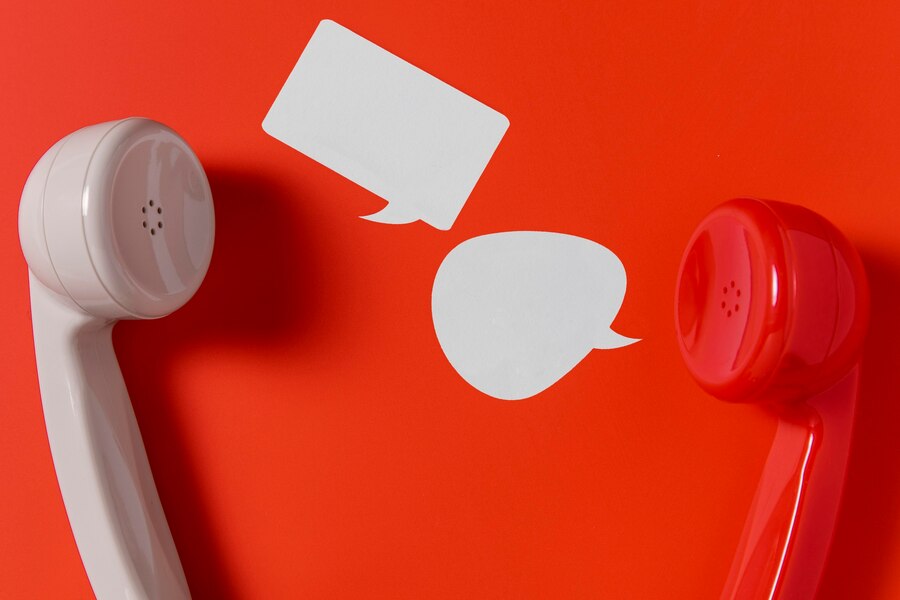
Imagine that 2025 is the year where you follow through on your plans, smash each goal, thrive in your relationships, hit personal financial targets and stay ahead in your career. Sounds amazing, right? I know! But the thing is none of that could come to fruition without effective communication.
From nailing that big presentation to having heartfelt conversations with loved ones, how you express yourself can make or break your year. The best part? Communication isn’t just a nice-to-have; it’s a must-have skill that you can develop to unlock clarity, build connections, and achieve your wildest dreams.
Let’s explore why effective communication is a key skill for your 2025 upgrade and how mastering it will transform your life.
Why Effective Communication Matters
Communication is everywhere—in your emails, casual conversations, meetings, and even the silent moments where your actions speak louder than words. It could even make or break your new relationship with your IJGB boo. But effective communication isn’t just about talking; it’s about ensuring your message is clear, understood, and impactful.
Think about it: How often do miscommunications derail plans or cause unnecessary stress? A small tweak in how you express yourself can save time, reduce misunderstandings, and strengthen your relationships—not to mention help you land that dream job.
3 Powerful Ways Effective Communication Transforms Your Year

1. Boosts Your Personal Growth
When you communicate effectively, you’re more likely to express your goals clearly, seek out opportunities, and build meaningful connections. Whether it’s sharing ideas at work, having honest conversations with loved ones or even conversing with yourself, clear communication drives personal and professional growth.
2. Enhances Productivity
Ever been stuck in an endless email chain because no one knew what the other was saying? Effective communication ensures everyone is on the same page, reducing confusion and making sure tasks are completed faster and more efficiently.
3. Strengthens Relationships
From friendships to workplace dynamics, communication is the glue that holds relationships together. When you listen actively and express yourself thoughtfully, you create trust, respect, and collaboration.
If you want to avoid being caught in “baby, I am sorry, that is not what I meant to say” situations, or watching as that well-spoken colleague gets that promotion instead of you, then…
Here are FIVE COMMUNICATIONS TIPS that will help you Succeed!

- Be Clear and Concise
Clarity is the foundation of effective communication. Whether you’re writing an email, giving instructions, or sharing your thoughts in a meeting, it’s important to avoid unnecessary jargon or overcomplicated explanations. The goal is to ensure your audience immediately understands what you mean without guessing.
For instance, instead of saying, “We should consider reviewing the data to potentially identify areas that might need improvement”, try, “Let’s review the data to identify improvement areas”. Clear communication not only saves time but also prevents misunderstandings. Practice organizing your thoughts before you speak or write to eliminate ambiguity.
Remember, brevity doesn’t mean leaving out important details. It’s about delivering your message in a way that’s both concise and complete.
- Listen Actively
Active listening is a game-changer in communication. Too often, people focus on what they’re going to say next instead of fully absorbing what the other person is saying. When you listen actively, you’re not just hearing words—you’re paying attention to tone, body language, and underlying emotions.
To practice active listening, make eye contact, nod to show you’re engaged, and ask clarifying questions when needed. For example, if someone says, “I’m overwhelmed with work”, you might respond, “It sounds like you have a lot on your plate right now. How can I support you?” This approach shows empathy and understanding, which helps build trust and connection.
Active listening isn’t just courteous; it’s the foundation of meaningful interactions. It ensures you fully understand others, which makes your responses more thoughtful and relevant.
- Adapt Your Style
Not all conversations are created equal. The way you communicate with your boss during a performance review should differ from how you joke around with friends at a weekend hangout. The way you use your bedroom voice to communicate affection to a significant other should not be the same way you show care to colleagues. Effective communicators recognize these nuances and tailor their approach based on the audience and context.
For example, when speaking with a team, you might prioritize professionalism and clarity. On the other hand, when addressing a younger audience, incorporating humour or relatable stories could make your message more engaging.
Adapting your style doesn’t mean being inauthentic—it’s about making your message accessible and impactful to your specific audience. Take time to observe how others prefer to communicate and adjust accordingly to enhance mutual understanding.
- Use Feedback Wisely
Feedback is a two-way street. Receiving constructive criticism helps you grow, but giving it thoughtfully is equally important. When delivering feedback, focus on being specific, actionable, and empathetic. Avoid general comments like, “You’re not doing well”, and instead say, “I noticed that the last report missed some key data. Let’s work on including those details next time”.
Similarly, when receiving feedback, approach it with an open mind. It’s natural to feel defensive, but constructive feedback is an opportunity to improve. Ask follow-up questions to clarify and show appreciation for the input, even if it stings initially.
Using feedback effectively creates a culture of continuous improvement. When done right, it enhances trust and fosters personal and professional development.
- Practice Empathy
Empathy is an important aspect of effective communication. It’s the ability to put yourself in someone else’s shoes and understand their perspective. Empathy doesn’t mean you have to agree with everything—it means acknowledging their feelings and showing you care.
For example, if a colleague seems frustrated, instead of dismissing their emotions, you might say, “I can see that this situation is really challenging for you. Let’s figure out a solution together”. This simple act of validation can diffuse tension and create a collaborative environment.
Empathy also makes your messages more relatable. Whether you’re addressing a large audience or having a one-on-one conversation, showing that you understand their concerns builds a deeper connection and ensures your message resonates.
Start Communicating Your Way to Success

This year can be your best yet, but it all starts with how you communicate. The way you speak, listen, and engage will determine how well you navigate challenges, build connections, and achieve your goals.
So, why not make effective communication one of your best weapons for navigating tough situations and challenges? With a little practice and maybe a short course on effective communication, you’ll not only transform and crush your year but inspire others to do the same.
Take our Effective Communication course here.
And since you read to the end, click here if you want a sweet discount.


